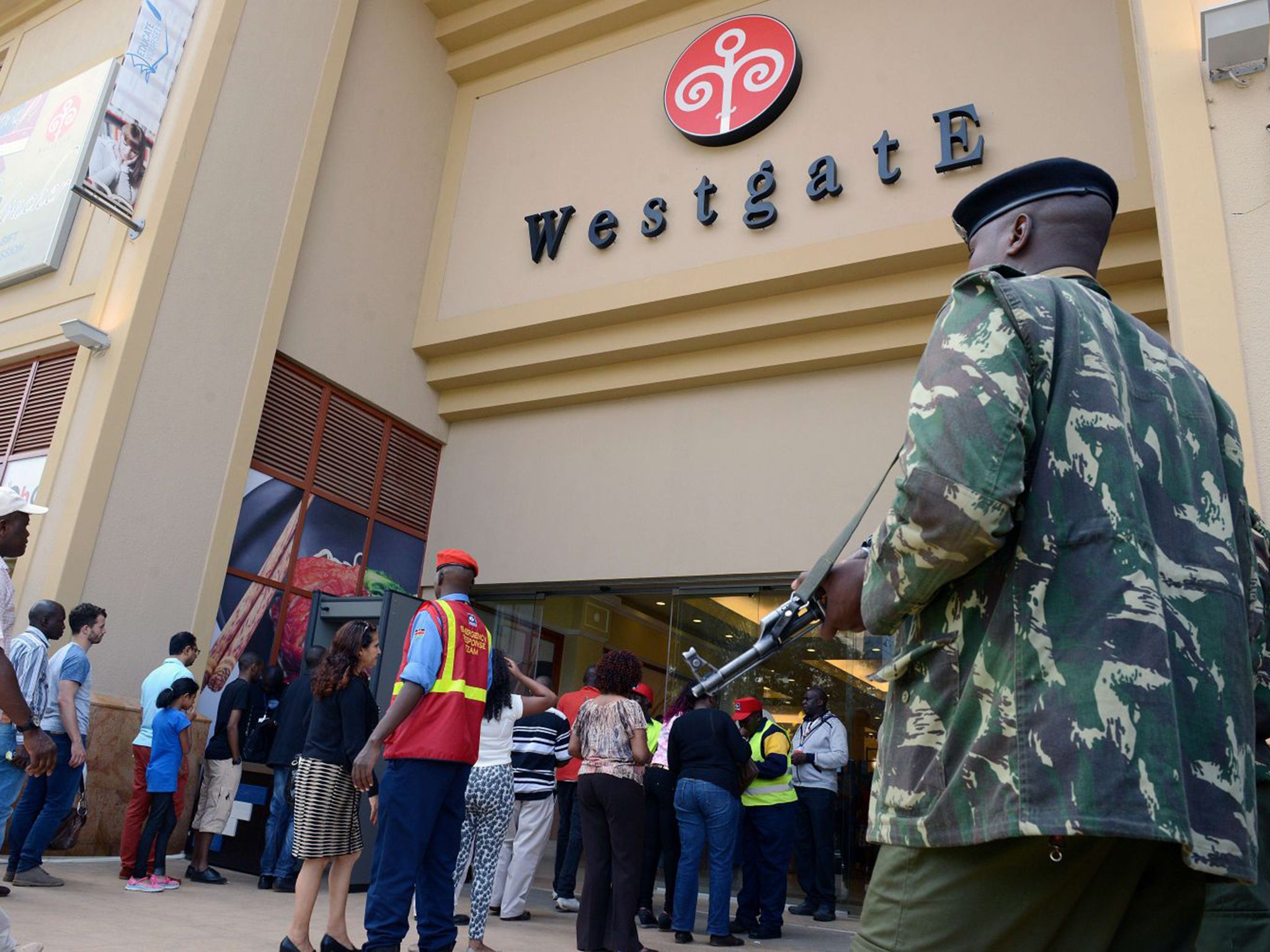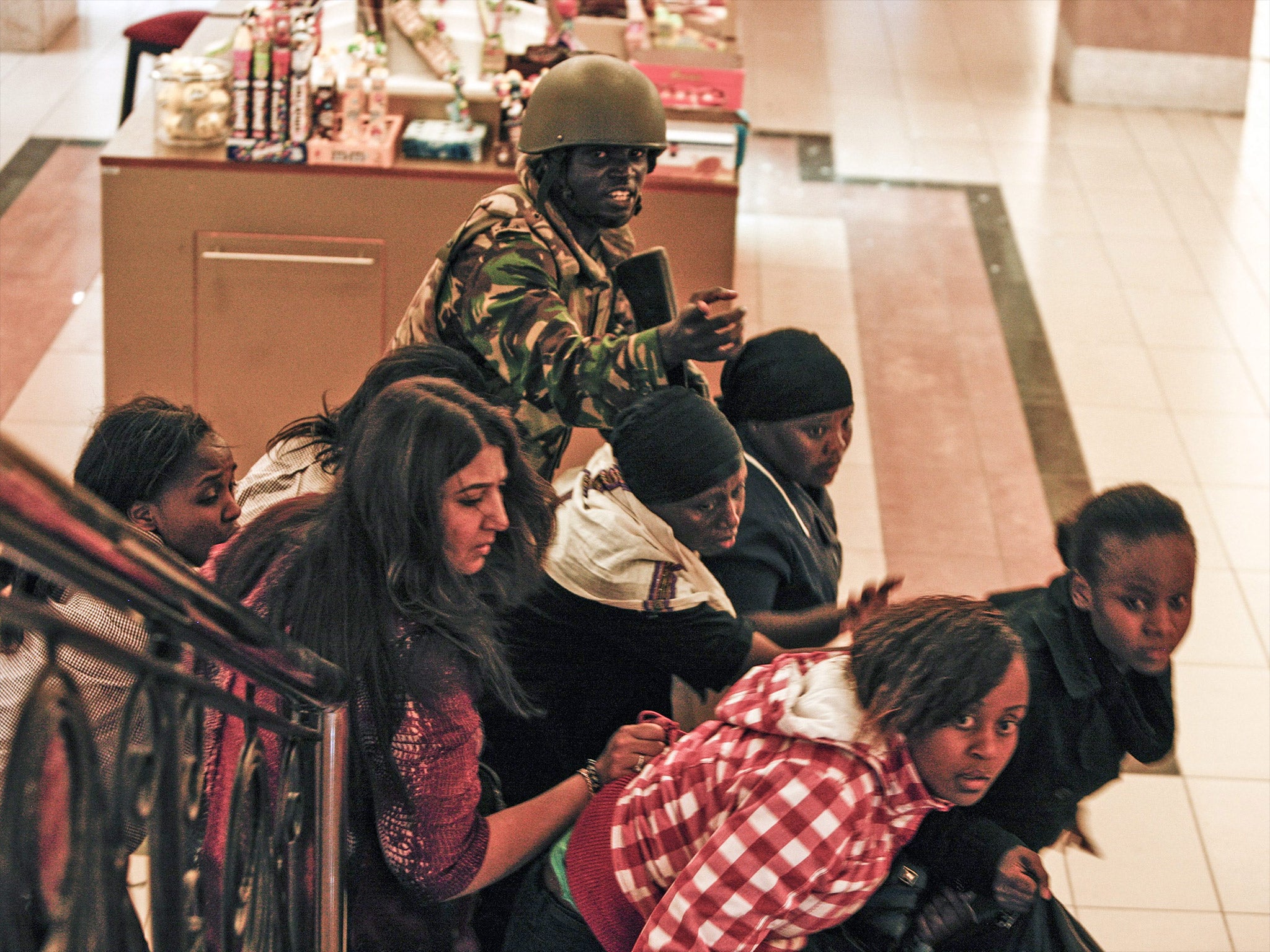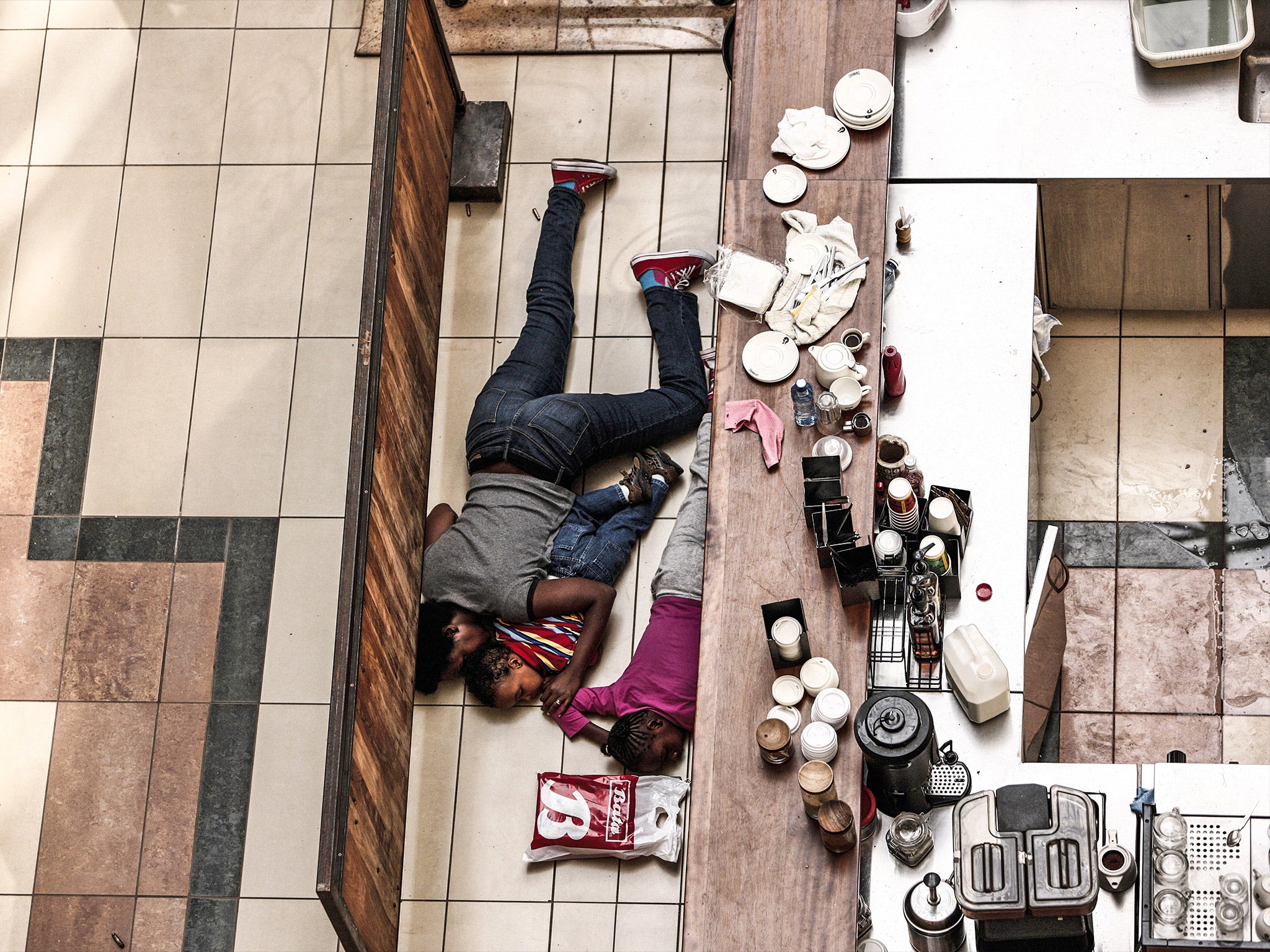Nairobi Westgate mall attack: Victims recall the horrifying event as shopping centre opens two years after siege
Shoppers return to Westgate, two years after al-Shabab gunmen killed 67

Your support helps us to tell the story
From reproductive rights to climate change to Big Tech, The Independent is on the ground when the story is developing. Whether it's investigating the financials of Elon Musk's pro-Trump PAC or producing our latest documentary, 'The A Word', which shines a light on the American women fighting for reproductive rights, we know how important it is to parse out the facts from the messaging.
At such a critical moment in US history, we need reporters on the ground. Your donation allows us to keep sending journalists to speak to both sides of the story.
The Independent is trusted by Americans across the entire political spectrum. And unlike many other quality news outlets, we choose not to lock Americans out of our reporting and analysis with paywalls. We believe quality journalism should be available to everyone, paid for by those who can afford it.
Your support makes all the difference.Ezekiah Amanya remembers only too vividly the horrors at Westgate shopping centre. He was one of many desperate relatives who came to try to help those stuck inside, left straining at a police cordon unable to reach their loved ones held by gunmen from Somalia’s al-Shabab.
“It was chaotic,” the 24-year-old recalled. His beautician cousin, Christine, had called his father from the salon where she worked on the third floor, pleading for her family to come for her. She was shot dead with her client. He said, of being unable to save her: “We were just mad, but what could we do?”
Fate drew him back yesterday, this time looking for a job as the shopping centre reopened, nearly two years after 67 people were killed in a four-day siege that began on 21 September 2013.

The scene still holds heartbreak, but he is undeterred. “You can’t keep on thinking about what happened,” he said. “If you keep on being scared, you can’t move on.”
Officials have described the reopening of Westgate, after one of the deadliest terrorist atrocities in Kenya, as a show of defiance. The bullet-scarred walls have been repainted, the shattered displays restored, and the traces of blood long tiled over. Shortly after the mall reopened at 10am, shoppers were streaming across the gleaming floors, cafés were gearing up for business, and smiling shop staff waited to welcome their first customers.
“It’s weird,” said Maureen, 24, a beautician whose stall faces the main entrance from which the gunmen, armed with machine rifles and grenades, stormed in. “It looks like nothing happened here.”
It is a massacre that is etched into Kenya’s collective memory; the day that terror struck at the heart of its aspirational middle class. Four gunmen, possibly more, overran the security guards, and started shooting indiscriminately at people as they fled. They casually picked off pregnant women and children.
In the aftermath, Kenyans united in an overwhelming display of grief, a unity that soon gave way to anger at the security forces’ bungled rescue attempt that allowed the gunmen to regroup and prolong the siege. Rocket-propelled grenades fired by security forces at the attackers caused large parts of the building to collapse. In the days that followed, reports of widespread looting by police prompted anger and disgust.
President Uhuru Kenyatta’s promised inquiry into what happened at Westgate has never materialised, leaving many questions unanswered, including even how many died, whether the attackers got away, and if the security forces would be expected to learn from their mistakes.
Walls erected around the mall in the aftermath of the attack stood for months as a reminder of Kenya’s failures to combat an increasingly potent terror insurgency within its borders. There were echoes of Westgate when, in April, al-Shabab gunmen slaughtered 148 people, mainly students, at a university in north-eastern Kenya.
Some of those working in the shopping centre are returning to their old jobs. Rosa Njeri, who works at African Lily, a leatherware shop on the ground floor, recalls how she heard the shots, and together with her colleague hid under the shop’s cabinets for several hours. “I was terrified,” she said. “We could just hear gunshots. We were whispering and comforting each other, telling each other that we would make it out.” She felt strong enough to return only after a period of counselling. “I feel OK,” she said yesterday, smiling.
Although just two security guards manned the main entrance, guards with radios patrolled the atrium, and police and army vehicles were stationed outside. The Israeli owners of Westgate have switched from a Kenyan security firm to Israeli firm IRG, although there was no sign of their touted new luggage x-rays.

Paul Mbugua, who was with his wife and three-year-old son, said they felt a little nervous, but that it was important to come. “We really can’t allow acts of terrorism to control how we live,” he said. “If we did, we would always live in fear.”
But he was dismayed that there was no memorial at Westgate, no reminder of that terrible day. “We should not push what happened under the carpet,” he said. “We should always have something that can remind us what happened.”
That sentiment was shared by Aziz Virani, 70, owner of men’s clothing store Sir Henry’s. “There should have been a memorial,” he said. “It’s pretty bad, isn’t it? People lost their children, their businesses here.”
Join our commenting forum
Join thought-provoking conversations, follow other Independent readers and see their replies
Comments